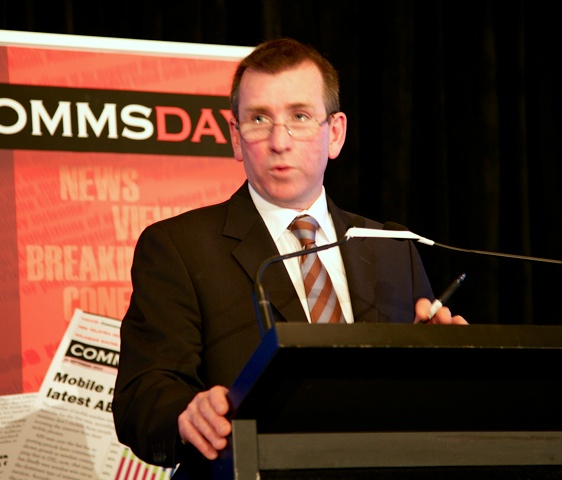Comms Alliance seeks to join iiNet-AFACT

Internet industry body the Communications Alliance has sought to intervene in the iiNet-AFACT High Court legal stoush because the case "carries with it enormous risks not just for iiNet but for the entire internet industry", CEO John Stanton explained today.

John Stanton
(Credit: David Braue/ZDNet Australia)
Speaking at industry gathering the CommsDay Summit in Melbourne today, Stanton said the organisation would lodge an amicus curiae brief in support of iiNet's submissions in the High Court case, which was recently scheduled to be heard on 1-2 December.
The organisation will not only support iiNet's submissions in the case, but will make additional arguments about issues such as what constitutes copyright infringement and what constitutes reasonable steps that an internet service provider (ISP) could take to help prevent copyright infringement by its customers.
Noting that the Communications Alliance had helped a number of major ISPs negotiate with content owners on the issue, Stanton said the case had the risk of setting a precedent that could have severe financial implications on the country's ISPs.
"The risk is that this case could flow into a requirement for all ISPs to spend enormous amounts of money to put in place regimes that could result in the disconnection of internet customers," Stanton said.
"In today's increasingly connected world, the disconnection of customers can also involve disconnecting them from voice or emergency calling services — and disconnecting users that have had nothing to do with any alleged or real infringement."
In addition to the Communications Alliance, the Australian Privacy Foundation has also sought to intervene on the case, making a submission (PDF) to the High Court last week. The Privacy Foundation has said it wishes to address the issue of the privacy of personal customer data, which has been neglected in the case to date.
"Neither the collection of evidence by the appellants [AFACT] nor the activities the appellants want the respondent to engage in can take place without invasions of the privacy of individual internet users," the foundation said.
In closing his CommsDay Summit speech, Stanton also took a swipe at the Australian Communications and Media Authority (ACMA) inquiry into 1300 and 1800 numbers, announced yesterday at the conference by ACMA deputy chairman Richard Bean. Noting that consumer-advocacy body the Australian Communications Consumer Action Network (ACCAN) had received just two complaints per month about the cost of such calls, Stanton called upon ACCAN head Teresa Corbin — who stood up after Bean's presentation to commend the initiative — to justify her support.
The initiative addresses an issue that represents around 24 complaints per year from an installed base of around 20 million mobile services. "We can all do the math as to whether this is a high profile issue for users in Australia," Stanton said.
Corbin, responding during her speech later in the morning, was unrepentant. Stanton's statement "demonstrates better than I ever could why this industry needs consumer representation", she said. "The people we represent have never heard of ACMA and very few have heard of the TIO. And they're the ones that can least afford to bear the cost of mobile calls to essential services using 1800 and 1300 numbers."
Josh Taylor contributed to this article.